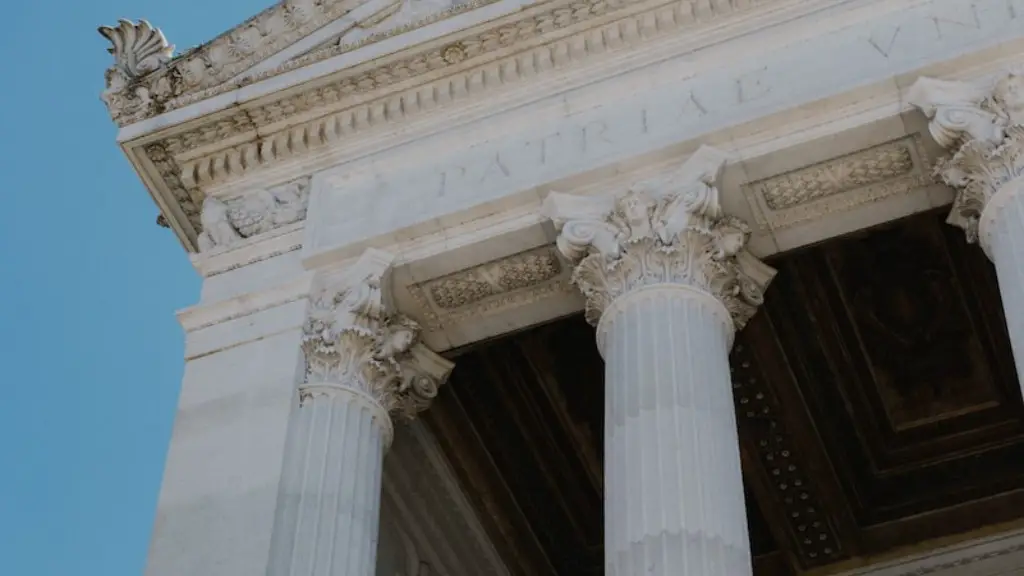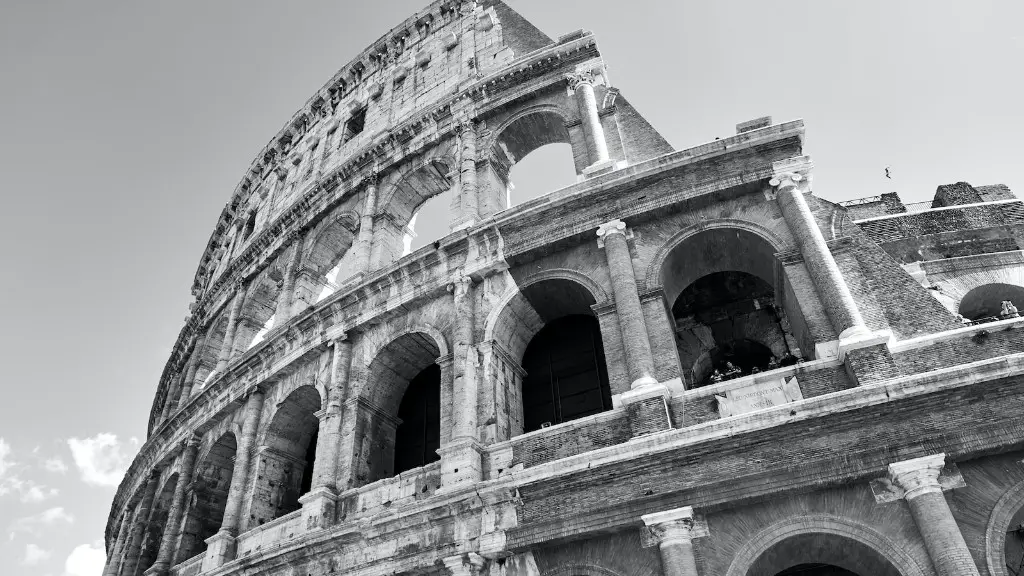Background Information
White nationalism is an ideology that advocates for the superiority of the white race in the world. It has become a pervasive movement in recent history, with the rise of white supremacy groups such as the Ku Klux Klan and far-right political parties in Europe and the United States. One of the common associations with white nationalists is the admiration for ancient Rome, in particular its militarism and imperialism. There is a shared perception among white nationalists that ancient Rome was a model of white power that should be emulated and revived today.
Ancient Rome and White Nationalism
White nationalists admire the level of militarism and imperialism of the ancient Roman Empire, as it is seen as a form of strength and power that can be used to protect and uphold white power. They also identify with the idea of Roman exceptionalism, where Roman citizens believed they were the chosen people of the gods and their society was better than any other. White nationalists feel they have been chosen by God to create a white utopia on earth, so they share many of the same ideals as the ancient Romans.
White nationalists also glorify the strength of the Roman emperor and military, claiming that the vigour of the ancient Roman Empire set an example that contemporary white nationalists should follow. This admiration of the Roman military might is partially caused by the perception that Rome was a “white” society, even though its citizens were mostly people from the Mediterranean and its rulers were ethnically diverse. It is this view that white nationalists hold onto, despite the historical evidence pointing to the contrary.
White Nationalism and Supremacy
The admiration for ancient Rome among white nationalists does not just stop at its militarism and imperialism. They also see Rome as a symbol of white supremacy, as its brand of authoritarianism and domination is also seen as a sign of white superiority. For white nationalists, Rome serves to validate the idea that white people are destined to rule, and that authoritarianism and domination are valid means of enforcing this idea.
However, not all views of Rome among white nationalists are positive. The idea of a unified, multicultural Roman Empire runs counter to their conception of the world, as they have painted people of colour as “others”, and a unified society would threaten their white power. The inclusion of people of colour in the Roman Empire has been a source of resentment among certain white nationalists, who have sought to vilify any attempt at multiculturalism.
Conclusion
White nationalists have found admiration and validation in ancient Rome, as they perceive it as a symbol of white power, strength and domination. They have exalted Rome for its militarism and imperialist ideology, and for the perception of its citizens as “white”. This reverence for ancient Rome has been both a source of pride and resentment for white nationalists, as its embrace of multiculturalism clashes with their white supremacist ideology.
Re-evaluation
White nationalism has been heavily criticized in recent years, and has been denounced by many as an immoral and wrong-minded ideology. As such, it is important to take a step back and re-evaluate the admiration and reverence for Rome among white nationalists. Although Rome may be seen as a symbol of strength for white nationalists, its multiculturalism and inclusive policies must be taken into consideration. It is only by understanding the wider context and culture of ancient Rome that white nationalists can come to a better and more informed view of its place in history.
Modern Context
The rise of white nationalism in the 21st century has seen an increase in the idolization of ancient Rome. White nationalists are seeing it through a modern, nationalist lens, and are using it as a justification for their ideology. This is a cause for concern, as Rome’s example is inherently flawed and can be used to legitimize and propagate divisive and harmful ideas.
It is important to remember that Rome was not a “white” superpower and never embraced racism or white supremacy. It was a multicultural, diverse society that embraced people of all backgrounds and ethnicities. The rise of white nationalism should not be used as an excuse to misrepresent history, and it is important to take a sober look at the realities of ancient Rome and its place in history.
Consequences
White nationalism has had dire consequences in the social, political and cultural spheres, and is an ideology that has been historically used to oppress and marginalize people of colour. Its attempts to glorify and validate its views through history or ancient cultures must be viewed critically, and its embrace of Rome must not be seen as an endorsement or acceptance of its views. It is incumbent upon us to understand the larger context of Rome and its own version of nationalism, so that its misuse to legitimize white supremacy can be avoided.
Scepticism
It is important to maintain a sense of scepticism when looking at the reverence for Rome among white nationalists. Celebrating Rome or its example without looking at its complexities or its oftentimes oppressive policies is dangerous, as doing so ignores the wider ramifications of Roma’s history and its impact on modern society. White nationalists should not be allowed to use history as a vehicle to propagate their own ideology, and it is our responsibility as historians and citizens to challenge any attempts to misrepresent the past.
Educational Response
Given the rise of white nationalism and its use of history as a justification for its views, it is essential that we have a thorough and balanced educational response. An effective educational response must challenge the narrative of the past put forward by white nationalists, and ensure that students understand the complexities and nuances of ancient Rome and other historic cultures. Schools and universities must provide students with an informed and critical perspective on history, and must be proactive in challenging any attempts to use history as a justification for white supremacy.
Critical Thinking
The admiration for ancient Rome among white nationalists should not be dismissed. It is a reminder of the power of history, and the need for us to look at the past critically and approach this subject from multiple angles. By engaging in critical thinking and challenging preconceived notions of the past, we can ensure that history is not distorted to fit the agendas of nationalists and supremacists. In doing so, we can ensure a more balanced view of the past and a better understanding of ancient Rome and its place in today’s world.


